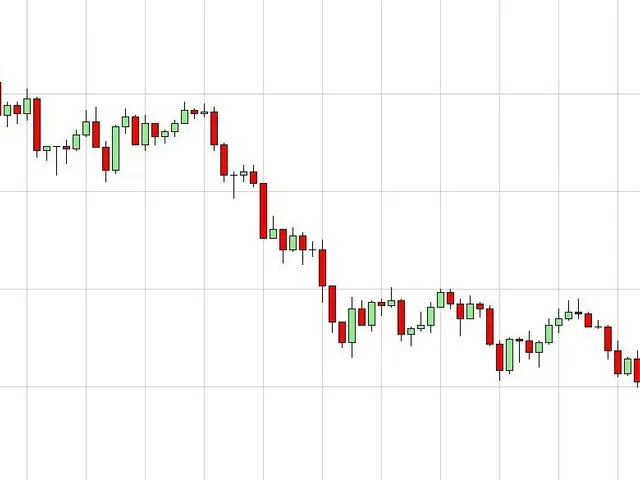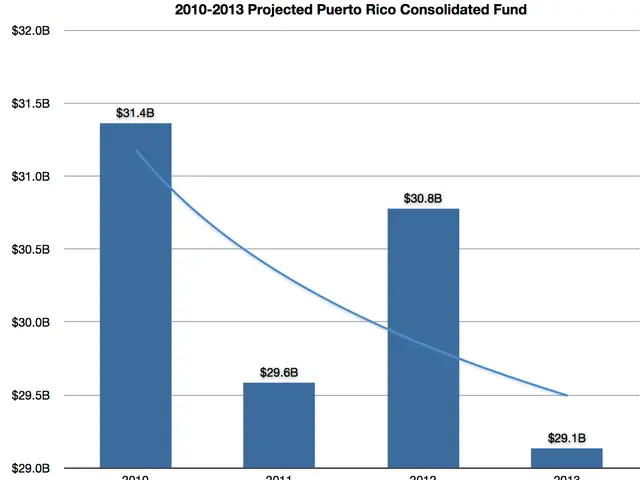Stock market index Sensex plummets by 721 points, reaching a one-month record low
Indian Markets Suffer Significant Decline Amidst Global Uncertainties
India's benchmark indices, the Sensex and Nifty, experienced a substantial decline on Friday, marking four consecutive weeks of losses. The selloff was primarily due to a combination of weak global cues, subdued corporate earnings, foreign institutional investor (FII) selling, stalled US-India tariff negotiations, and concerns related to the European Central Bank's (ECB) interest rate decisions.
The Sensex closed down 572 points (0.7%), at 80,891, while the Nifty dropped 156 points (0.63%), to 24,681. The market breadth was negative, with 2,892 losers against 1,117 gainers on the BSE.
Weak Global Cues
Although the US and the European Union reached a framework trade agreement easing broader trade war concerns, India did not benefit similarly as the US-India tariff talks remained deadlocked. This contrasted outcome dampened market sentiment in India, as global trade uncertainties affect investor confidence.
Subdued Corporate Earnings
Poor quarterly financial results across sectors, especially in IT where major employers announced layoffs and global workforce cuts, weighed heavily on market performance. This weak earnings outlook sapped investor appetite.
FII Selling
Foreign portfolio investors sold net shares worth nearly Rs 2,000 crore on Friday, contributing to downward pressure on the indices. Although domestic institutional investors were net buyers, the net outflow from FIIs hurt market liquidity and sentiment.
US-India Tariff Negotiations
Deadlocked tariff talks over agriculture and dairy product duties between India and the US ahead of a crucial August 1 deadline added uncertainty. Unlike trade deals with Japan and the EU, hopes for a quick US-India trade agreement faded, adversely impacting market confidence.
European Central Bank’s Interest Rate Decision
While details are less direct, ECB’s interest rate policies influence global capital flows and risk sentiment. Concerns over interest rates in Europe can cause investors to reassess emerging market exposures, including in India, contributing to selling pressure.
Market Performance
Sectorally, realty, IT, energy, FMCG, and oil & gas were the top laggards, falling up to 5%. Among Sensex constituents, Trent, Reliance Industries, Tech Mahindra, Infosys, and HCL Technologies were major losers, falling up to 6.14%. On the other hand, Eicher Motors, ICICI Bank, HDFC Bank, Bharti Airtel, and Titan Company were among gainers, rising up to 20.69%.
The BSE Midcap and BSE Smallcap indices slumped 1.46% and 1.88%, respectively. The recent correction in the markets reflects growing concerns around earnings disappointments and cautious management commentary.
Ajit Mishra, SVP - research at Religare Broking, noted that continued FII selling is exacerbating the pressure on the markets. The India VIX index rose 5.15% to 11.28, indicating increased market volatility.
In summary, the market decline on Friday was a response to multiple converging negative factors: weak global trade outlook especially due to stalled US-India tariff talks, disappointing corporate earnings—particularly in IT—coupled with significant foreign selling and overall cautious investor sentiment influenced by global interest rate and trade developments.
- Concerns about the European Central Bank's interest rate decisions have the potential to affect investor confidence and capital flows, influencing market performance in India.
- The selloff in Indian markets, as indicated by the decline of the Sensex and Nifty, has been attributable to a combination of weak global cues, subdued corporate earnings, FII selling, stalled US-India tariff negotiations, and the influence of global interest rates and trade developments.
- The market performance in sectors like realty, IT, energy, FMCG, and oil & gas was particularly poor, with some stocks experiencing falls of up to 5%.
- Foreign institutional investors (FIIs) sold net shares worth nearly Rs 2,000 crore on Friday, contributing to downward pressure on the indices and potentially hurting market liquidity and sentiment.
- The deadlock in tariff talks over agriculture and dairy product duties between India and the US has added uncertainty and adversely impacted market confidence, as hopes for a quick US-India trade agreement have faded.
- Investors might reassess their emerging market exposures, including in India, due to concerns over interest rates in Europe, potentially causing additional selling pressure in the markets.





